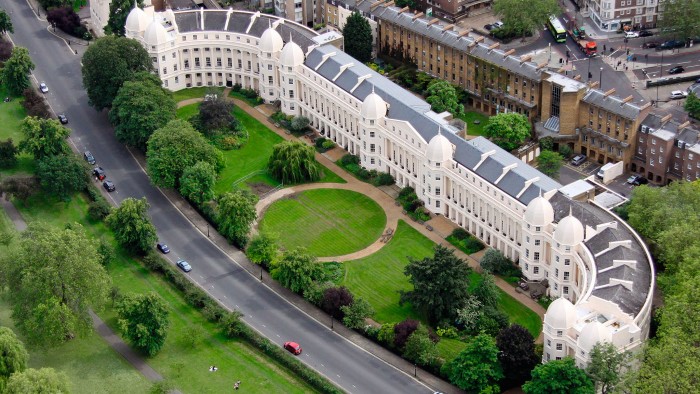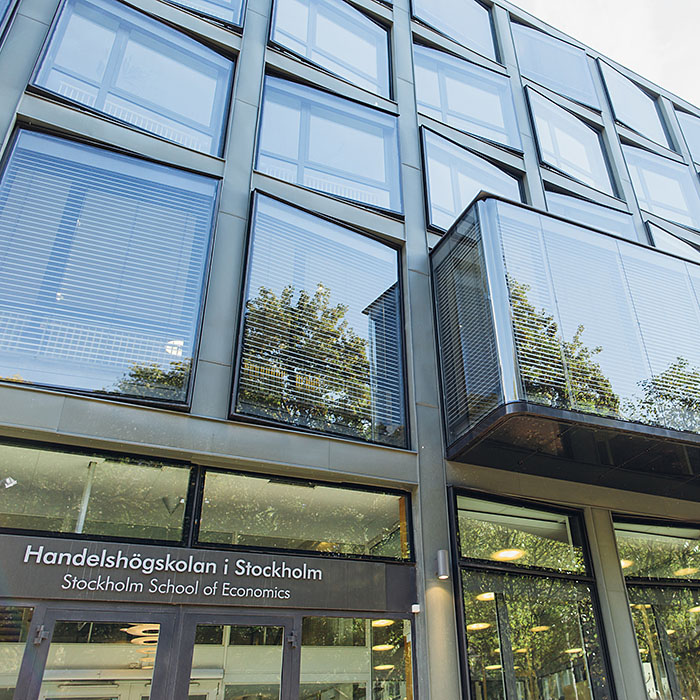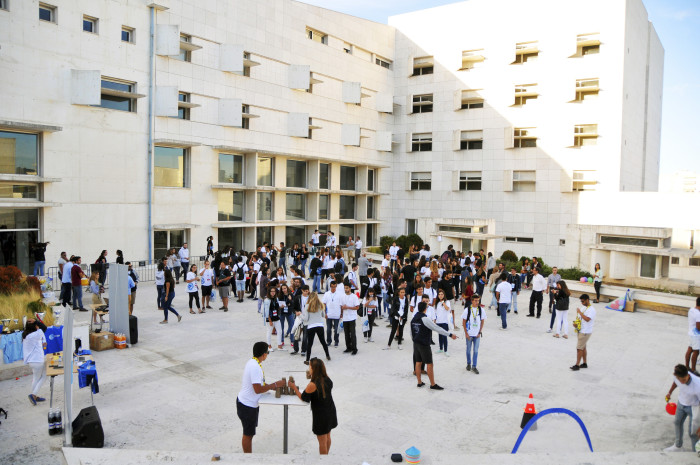FT European Business School rankings 2017

Simply sign up to the Business education myFT Digest -- delivered directly to your inbox.
As Europeans look for stability in turbulent times, the continent’s best business schools deliver exactly that. The top 14 schools remain the same as last year, with only slight reshuffling, while London Business School is number one for the fourth year in a row.
LBS continues to benefit from its broad range of ranked courses, consistently performing well in the five main FT rankings that are used to compile the European Business School Ranking 2017, which measures the quality and range of postgraduate programmes. The table of 95 schools is based on their performances in the 2017 rankings for MBAs, Executive MBAs, Masters in Management and the two tables for executive education.
Insead’s MBA is top for a second year but the French school lost its first place on the EMBA table after its dual degree with China’s Tsinghua University was beaten by a joint programme run by schools including LBS.
The University of St Gallen in Switzerland retains its number one spot in the Masters in Management ranking. IMD, also in Switzerland, and Iese Business School in Spain keep their top positions in the executive education rankings for open-enrolment and custom programmes.
In joint 15th place in the European ranking are the UK’s Warwick Business School (up from 22nd last year), City University: Cass in London (up from 26th) and Germany’s Mannheim Business School (up from 19th).
Mannheim is the first school in the history of the EMBA ranking to enter with only joint programmes. One of the school’s degrees is run in collaboration with Tongji University in China, the other with Essec, which has main campuses in France and Singapore. Both programmes rank among the best 25 in Europe.
The top three European degrees in the EMBA ranking are collaborations, two involving LBS and one Insead, which further underlines the rise of joint programmes.
Jens Wüstemann, president of Mannheim Business School, says that many of the best EMBAs are joint programmes, since there is a strong demand from participants for study in different countries.
“The type of people who do an EMBA want an international experience,” Prof Wüstemann says. “It is better to have several schools introduce you to business in the region that each knows best, than one school that exports you all over the world.”
Some students surveyed for the rankings seem to agree. A graduate of the EMBA-Global Asia, run by LBS with Columbia in New York and the University of Hong Kong and new to the ranking this year, said it was enlightening to get European, US and Asian perspectives. “The three-continent approach gives you a truly holistic view of business with the depth of global thinking,” she said.
Alumni of European schools, who were surveyed three years after graduation, primarily go into finance and banking, consultancy or the industrial sector after their studies. But the stories differ for graduates who remained in their country of study and those who left to work elsewhere (see graphic). Of those who stayed, consultancy and transport/logistics are equally popular destinations, with IT and telecoms third. Out of those who left, most went into finance, with consulting and then IT and telecoms second and third.
The proportion of graduates who remained in their country of study three years after graduation varies. In Poland, 8 per cent of graduates moved abroad, while in Spain 81 per cent left. Job opportunities and demographics play a role. Most students at Polish schools are Polish. Of those who leave Spain the majority go to Latin America from where many come.
Frankfurt School of Finance and Management made the biggest jump this year. The school rose 20 places from 55 to 35 as it entered both the Masters in Management and open-enrolment executive education rankings for the first time. The ranking aggregates the performance of the schools in all rankings in which they appear.
Six new schools joined the ranking, from the UK, France, Italy, Belgium and Portugal. ISCTE Business School of Lisbon does best out of the newcomers, going straight to 80th place.

Top school: London Business School
2017 is LBS’s fourth year in a row at the top of the FT European ranking. It is in the European top five in four of the five FT rankings used to compile this composite ranking. Its joint EMBA with Columbia and the University of Hong Kong was second in October’s EMBA ranking on its first participation.
Top German school: Mannheim

Mannheim is the highest placed of six German schools. It rises four places to 15th place, its best yet. The school’s joint EMBA with Tongji University of China was ranked for the first time this year. Mannheim is unique in offering two ranked joint-EMBA programmes (the other with Essec Business School) but no solo programme.
Top Scandinavian: Stockholm

Stockholm School of Economics remains the top-ranked school in Scandinavia. SSE is 27th in Europe, just ahead of Aalto University, ranked 32nd. The schools have rarely been more than five places apart in the past 10 years. BI Norwegian Business School and NHH of Norway continue to narrow the gap, in 33rd and 35th places respectively.
New entrant: ISCTE

ISCTE Business School of Portugal is this year’s highest new entrant at 80. The Lisbon school was ranked for the first time in the Masters in Management ranking, at 72nd in Europe. The school is near to two more internationally established business schools in Lisbon: Nova and Católica-Lisbon, ranked at 25th and 26th overall.
Top for female faculty: DCU

DCU Business School was the second Irish school, after UCD Smurfit, to feature in this ranking after it entered the Masters in Management ranking in 2016. The schools are both in Dublin. DCU has the most gender-balanced faculty. Almost half (49 per cent) are women and Professor Anne Sinnott is the executive dean.
Top in Eastern Europe: St Petersburg

St Petersburg GSOM is up seven places to 57. This is the school’s best performance since it entered the ranking in 2013. It has improved its position in the Masters in Management ranking, rising from 35 to 21, and returns to the EMBA ranking in 56th place. The school has a near gender-balanced faculty but only 4 per cent are international.
Comments